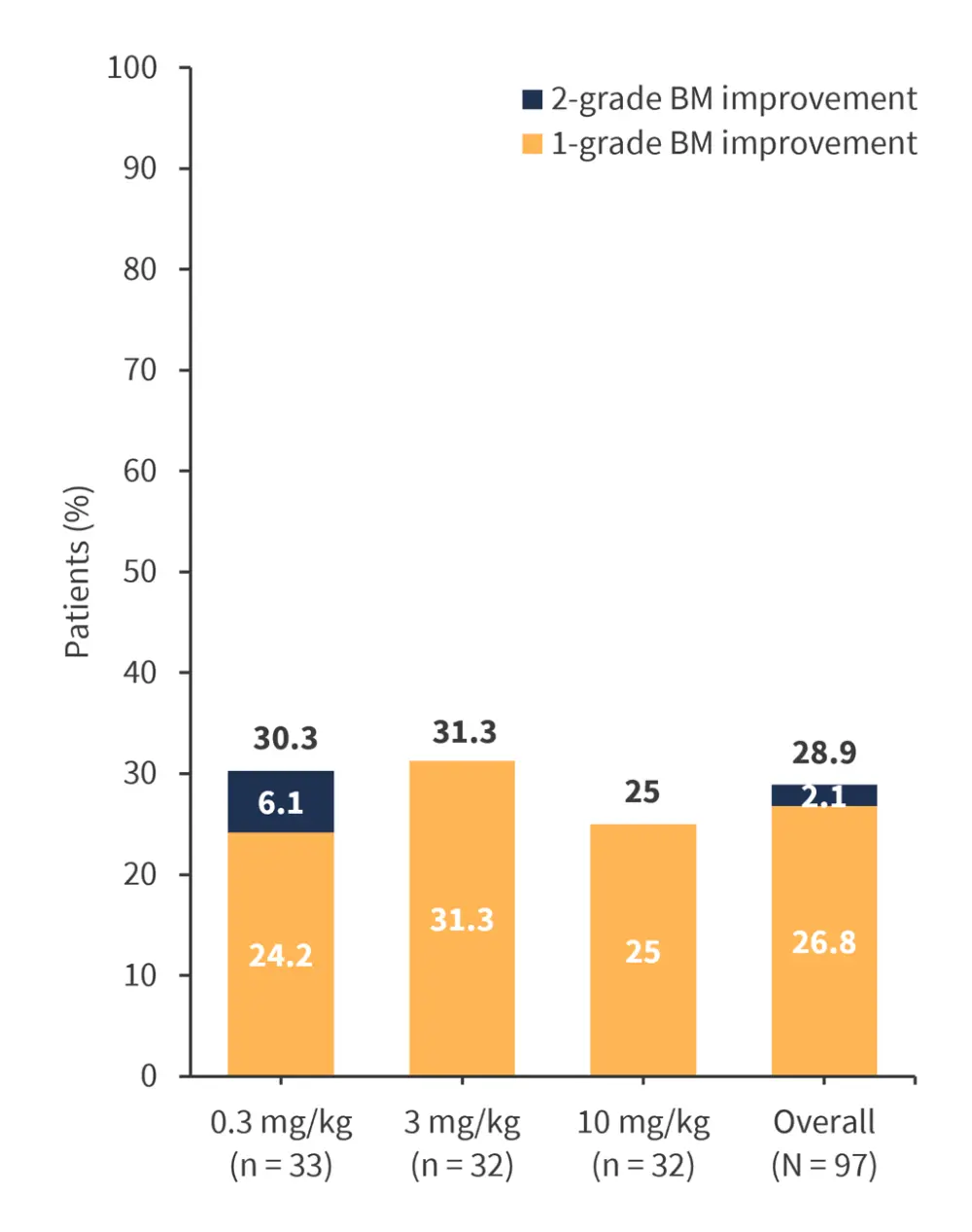All content on this site is intended for healthcare professionals only. By acknowledging this message and accessing the information on this website you are confirming that you are a Healthcare Professional. If you are a patient or carer, please visit the MPN Advocates Network.
The mpn Hub website uses a third-party service provided by Google that dynamically translates web content. Translations are machine generated, so may not be an exact or complete translation, and the mpn Hub cannot guarantee the accuracy of translated content. The mpn and its employees will not be liable for any direct, indirect, or consequential damages (even if foreseeable) resulting from use of the Google Translate feature. For further support with Google Translate, visit Google Translate Help.
The MPN Hub is an independent medical education platform, sponsored by AOP Health, GSK, Sumitomo Pharma, and supported through educational grants from Bristol Myers Squibb and Incyte. Funders are allowed no direct influence on our content. The levels of sponsorship listed are reflective of the amount of funding given. View funders.
Now you can support HCPs in making informed decisions for their patients
Your contribution helps us continuously deliver expertly curated content to HCPs worldwide. You will also have the opportunity to make a content suggestion for consideration and receive updates on the impact contributions are making to our content.
Find out more
Create an account and access these new features:
Bookmark content to read later
Select your specific areas of interest
View MPN content recommended for you
Zinpentraxin alfa treatment for patients with MF intolerant of or ineligible for ruxolitinib
Patients with myelofibrosis (MF) are more likely to experience fibrotic changes which can impact the bone marrow (BM) niche, and result in impaired hematopoiesis, anemia, and thrombocytopenia. Zinpentraxin alfa is a recombinant form of the human pentraxin-2 which possesses antifibrotic activity and is being investigated in the treatment of MF.
Here, we summarize a study published by Verstovsek et al.1 in Haematologica on results from the randomized phase II trial (NCT01981850) of zinpentraxin alfa in patients with MF who are ineligible for, intolerant of, or had an inadequate response to ruxolitinib.
Study design1
- Three different doses of zinpentraxin alfa were evaluated for 9 cycles (36 weeks) in 97 patients:
- 0.3 mg/kg Q4W
- 3 mg/kg Q4W
- 10 mg/kg Q4W
- Patients without disease progression or discontinuation then proceeded to receive zinpentraxin alfa at 10 mg/kg in an extension study.
- The primary endpoint was the BM response rate, defined by a ≥1-grade reduction in BM fibrosis based on the European Consensus criteria.
- Myeloproliferative Neoplasm Symptom Assessment Form Total Symptom Score (MPN-SAF TSS), hemoglobin, and platelet improvement were also assessed.
Key findings1
Efficacy
- In total, 28.9% of patients experienced a BM response which was consistent across subgroups (Figure 1).
- A BM improvement of 2-grades was most commonly observed in the 0.3 mg/kg cohort at 6.1%.
- Across the entire cohort:
- a total of 34% had ≥50% reduction in MPN-SAF TSS at any time vs baseline; and
- clinical improvement and stable disease were reported in 16.5% and 69.1%, respectively.
- In the 0.3 mg/kg, 3 mg/kg, and 10 mg/kg cohorts, respectively:
- Hemoglobin improvements were highest in the 3 mg/kg cohort (15.2%, 15.6%, and 6.3%)
- Platelet improvements were highest in the 10 mg/kg cohort; (27.3%, 34.4%, and 37.5%)
Figure 1. BM improvement by cohort*

BM, bone marrow.
*Adapted from Verstovsek, et al.1
Safety
- All patients experienced ≥1 treatment-emergent adverse events (TEAE), and 21.2% led to treatment discontinuation.
- The most common serious TEAE across the whole study population were pneumonia (5.2%) and epistaxis (3.1%)
- Grade 3–4 TEAE were most commonly observed in patients receiving 3 mg/kg compared with 0.3 mg/kg and 10 mg/kg (56.3% vs 36.4% and 37.5%)
References
Please indicate your level of agreement with the following statements:
The content was clear and easy to understand
The content addressed the learning objectives
The content was relevant to my practice
I will change my clinical practice as a result of this content


